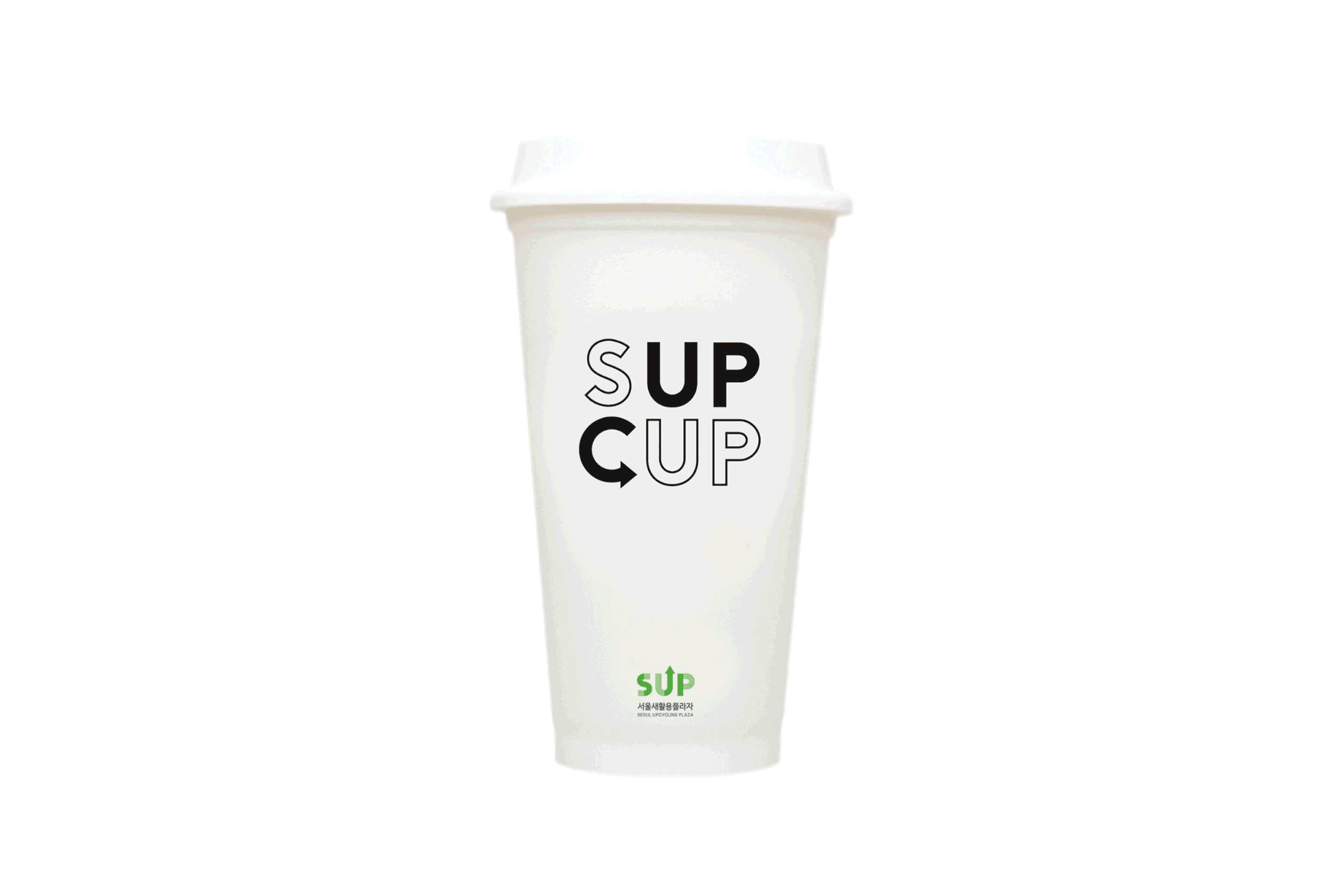SUPCUP
SUPCUP is a closed-loop system designed to reduce waste in coffee shops in Seoul.
Client
Seoul Upcycling Plaza
Scope
1 Week
May 2016
Role
Project Lead
Research
Strategy
Team
Chaewon
Younghye
Hyewon
Gibbeum
Minkyeong
Thomas
Overview
During a one-week workshop in Seoul, 10 UAL students and 20 SADI students were divided into teams to develop new solutions for the Seoul Upcycling Plaza (SUP) to encourage Seoul citizens to live more sustainably, and further the awareness of waste as a resource. My team in particular decided to use the circular economy as our North Star, focusing on zero-waste thinking rather than simply extending product life cycles (which eventually end up in landfill anyways). After primary and secondary research, we honed in on the opportunity of using coffee shops in Seoul as a way to reduce waste and promote sustainability.
Process Map
Overview of our team's process, following the double diamond process split into 4 stages.
Research
Research for this project consisted of a mix of site visits, street observations and guerrilla interviews. This was vital in combining the knowledge and expertise of our stakeholders with the needs of the community we observed in the field.
Tour of SUP
Our client site - the Seoul Upcycling Plaza was a new and modern building (not yet open at the time) - designed to be a hub of resources for sustainable innovation. The plaza housed recycling/upcycling facilities as well as acted as an incubator for social enterprises by providing workspaces.
Streets of Seoul
We hit the streets of Seoul to observe how people obtain and discard of trash in different situations. We also did guerilla interviews of Seoul citizens to ask about their lifestyle in regards to trash.
Seoul Resource Center
Touring the Seoul Resource Center, we were able to gain some insight on the end-of-life stage in the recycling process.
Key Insights
Gravity of Waste
Huge amounts of waste are produced every day in Seoul and spread all across the city.
Contrasting Situations
There are heavily contrasting situations in recycling outcomes depending on what system is in place.
Lack of Awareness
The awareness of upcycling is staggeringly low, especially given the high awareness of recycling.
Recycling system in residential complex - strict recycling rules are enforced by an on-site guard.
Trash build up in the streets of Seoul; no system in place.
Synthesis
Personas
Situation Evaluation
Following our research, we visualized the journey of one of our personas - the student - in his daily life. Through this, we highlighted pain points and areas for improvement.
Opportunity
How might the SUP leverage consumer’s daily touchpoints to reduce waste and encourage more sustainable behavior?
Concept Design
SUPCUP is a takeback system where coffee is served in reusable 'SUPCUPs' which rotate around Seoul's coffee shops. When a consumer finishes their coffee, they simply return the cup to any nearby shop to receive a ‘SUPcoin’ in return, which can be used for their next cup of coffee. By having coffee shops take ownership over the reusable cup system, it brings their costs down while simultaneously allowing patrons to be more sustainable with the same convenience.
SUPCUP first prototype
Final Mockup
Supcup service Map
The system starts at the SUP, which manufactures and distributes the SUPCUPs to shops around the city, and directly to consumers for a limited time. From then, the interactions are between customers and shops, exchanging cups for coins and coins for cups.
Benefits for Stakeholders
Shop Owners
- Help brand image
- Bring customers into the store through SUPCUP network
Customers
- Easy way to be more sustainable
- Save money by using less material
SUP
- Champion the zero waste agenda
- New business line
Touchpoints
Reusable Cup and Coin
Customers purchase a reusable cup for their first cup of coffee, and return the used cup at any partner store in exchange for a 'SUPcoin'.
SUPCUP App
The app holds the 'digital coin' which can be used in place for the physical 'SUPcoin'. It also helps customers track personal sustainable metrics, and identify partner shops.
Window Sticker
The SUPCUP window stickers will help customers identify stores where they can purchase and return their SUPCUPs.
Point of Purchase
Point of purchase displays will explain the service to customers.
Limited Edition Cups
Limited edition SUPCUPs can be printed to promote local events or as collaborations in support of local artists or designers. Over time, the cups will be able to tell a story of Seoul.































